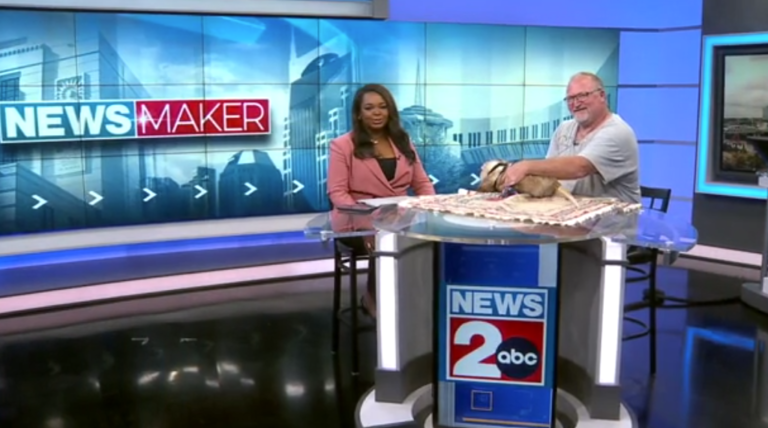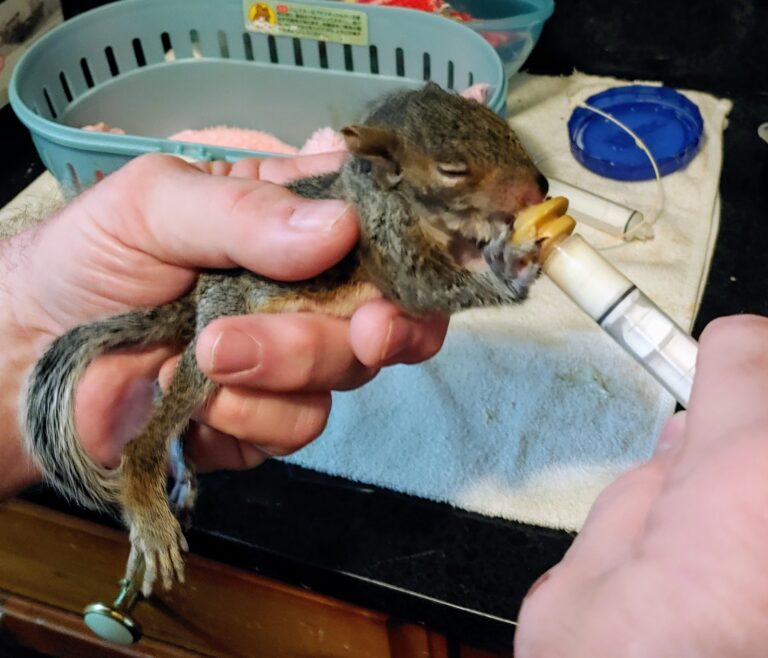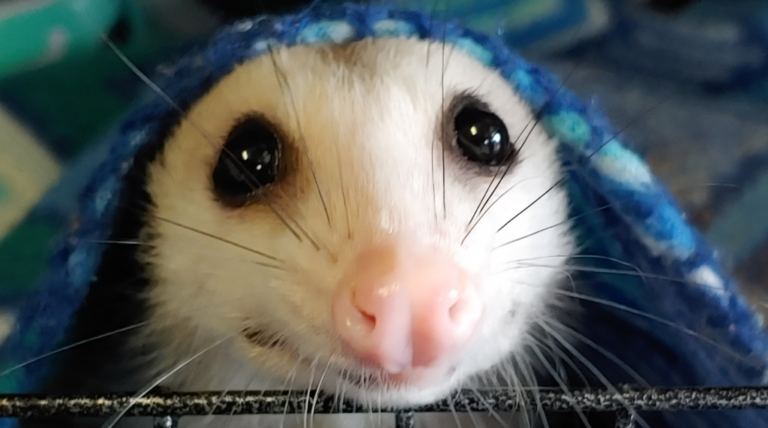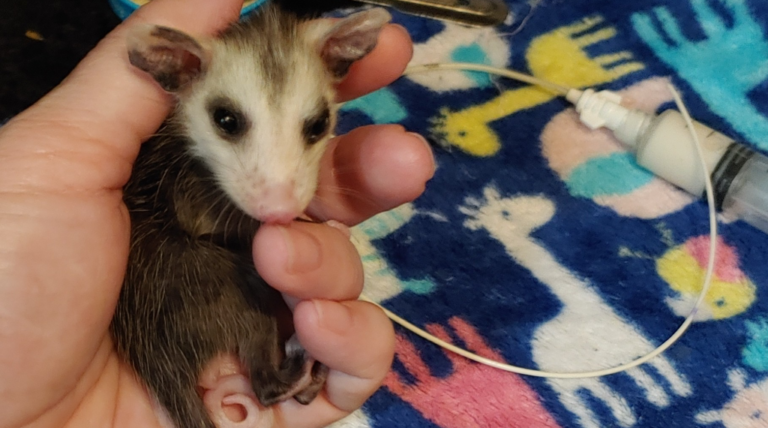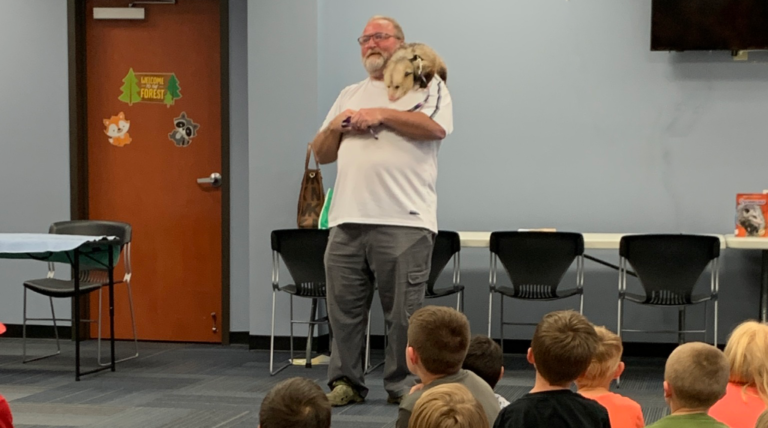If You Find An Injured or Orphaned Possum
Finding an injured or orphaned opossum can be a distressing experience, especially if you’re unsure of what to do. Opossums are unique creatures with specific care needs, and taking the right steps can make a significant difference in their chances of survival. Here’s a detailed guide on how to handle such a situation safely and effectively.
Step 1: Prioritize Your Safety
Safety First! Opossums, like many wild animals, can be defensive when frightened, and they have a powerful bite. Protecting yourself is the first priority.
- Use an Animal Trap: The safest way to capture an injured or adult opossum is by using an animal trap. If you have one available, this allows you to secure the opossum without direct contact, minimizing the risk of injury to both you and the animal.
- Wear Thick Leather Gloves: If you need to handle the opossum directly, ensure you’re wearing thick leather work gloves. These will provide some protection against bites.
- Wrap in a Blanket: Gently wrap the opossum in a thick blanket or towel. This not only helps protect you but also calms the animal by restricting its movement.
Step 2: Secure the Opossum
Once you’ve safely captured the opossum, the next step is to secure it in a safe, confined space.
- Use a Tote or Box: Place the opossum in a sturdy tote or box that can be securely closed. Ensure there are air holes for ventilation, but avoid using a container that the opossum can easily escape from.
- Minimize Stress: Keep the container in a dark, quiet place to reduce stress for the opossum. Avoid handling the container unnecessarily, and keep it away from loud noises or other animals.
Step 3: Keep the Opossum Warm and Safe
Opossums, especially babies, have difficulty regulating their body temperature, making warmth a crucial part of their care.
- Keep Warm: For baby opossums, maintaining body heat is vital. Use a heating pad set on low, wrapped in a towel, and place it under half of the box or tote to provide a warm spot. Alternatively, you can use warm blankets or towels.
- Monitor the Temperature: Be careful not to overheat the opossum, especially if using a heating pad. The animal should have a warm area and a cooler area to move to if it gets too warm.
Step 4: Do NOT Feed or Give Water
It might be tempting to try to feed the opossum or give it water, but this can do more harm than good, especially for babies.
- No Feeding: Baby opossums are not like other mammals that suckle. They attach to tubes inside the mother’s pouch, where milk is fed directly into their stomachs. Because of this unique feeding mechanism, they cannot safely suckle from a bottle or nipple and must be tube-fed by someone experienced.
- Risks of Feeding: Attempting to feed a baby opossum without the proper knowledge can lead to aspiration (inhalation of liquid into the lungs), which is often fatal. The safest approach is to keep them warm and transport them to a wildlife rehabilitator as quickly as possible.
Step 5: Transport to a Rescue Facility
Time is critical when it comes to the survival of orphaned or injured opossums. The sooner you can get them to a professional, the better their chances.
- Act Quickly: As soon as you’ve secured and warmed the opossum, transport it to your local wildlife rehabilitation facility. Even a short delay can significantly impact the animal’s chances of survival, particularly for orphaned babies who need immediate care.
- Finding a Rehabber: To locate a licensed wildlife rehabilitator in your area, visit the Tennessee Licensed Animal Rehabilitators webpage. Contacting a rehabber before arriving ensures they are prepared to take in the opossum and provide the necessary care.
Additional Tips: Handling Baby Opossums
If you find baby opossums, they require special attention due to their vulnerability and unique feeding needs.
- Warmth is Key: Keeping baby opossums warm is the single most important thing you can do before you get them to a rehabilitator. Without their mother, they can’t regulate their body temperature and are at high risk of hypothermia.
- Tube-Feeding Considerations: If you have experience and the proper equipment to tube-feed, you can offer unflavored Pedialyte to help address dehydration. However, this is only recommended if you are fully confident in the procedure, as improper tube-feeding can cause more harm than good.
Final Thoughts on the Importance of Quick Action
Finding an injured or orphaned opossum is a situation that requires prompt and careful action. By following these steps, you can give the animal the best possible chance of survival until it can receive professional care. Remember, the key to helping these animals is to keep them safe, warm, and stress-free, and to get them to a licensed wildlife rehabilitator as soon as possible.
If you’re ever in doubt about what to do, don’t hesitate to reach out to a professional for advice. Every minute counts, and your quick, informed actions can make all the difference.


